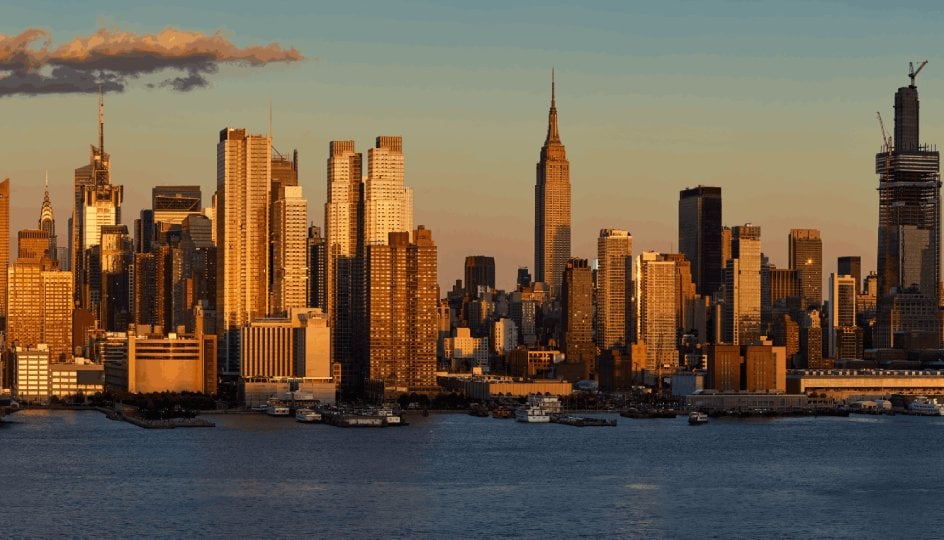Doing business in Brazil

Brazil is an attractive location for companies looking to invest in South America as it contains roughly half of the region’s wealth. However, the complex business environment and high costs can make doing business in Brazil a challenge. The key to successful expansion is a thorough understanding of the economic system and the regulations that companies will need to follow.
Brazil, officially called the Federative Republic of Brazil, is the fifth largest country in the world by size and the largest in South America, with a territory of around 8.5 million square kilometres.
The country is comprised of 26 states (estados) and one federal district (distrito federal), which is the seat of the government and the nation’s federal capital, Brasilia. Brazil has the tenth largest gross domestic product (GDP) and the eighth largest purchasing power parity in the world. It has an estimated US$21.8 trillion of natural resources including gold, uranium, iron and timber.
Brazil is a member of several important global economic organisations including MERCOSUR (the Southern Common Market), the Union of South American Nations (UNASUR), the G20, the World Trade Organisation (WTO) and the Cairns Group.
In recent years, the Brazilian government has implemented a raft of business reforms with the aim of simplifying things for foreign companies. These include user-friendly online portals for registering business licences and a new law that encourages parties to settle disputes with mediation.
While it is an attractive market for foreign investors, it is also a complicated one, with the country ranking as the third most complex business environment in the world in TMF Group’s Global Business Complexity Index 2023.
Doing business in Brazil therefore requires a thorough understanding of the local environment, including the difficult accounting and tax processes and the increased operational costs associated with certain business activities, referred to in Portuguese as the “Custo Brasil.”
Brazil business opportunities
In 2018, the Brazil Competitiveness and Inclusive Growth Lab report by the World Economic Forum found that too much dependence on its large domestic market and commodities exports had caused the country to fall behind other emerging markets in productivity growth.
However, Brazil’s economy is now on the path to recovery, thanks in part to a number of government initiatives launched to achieve fiscal sustainability and liberalise the market, making it a far more attractive environment for international investors.
Brazil is investing heavily in new infrastructure projects, such as the construction of new highways, ports and airports. These investments are expected to boost economic growth by increasing productivity, creating jobs and improving transport and logistics.
These efforts have strengthened Brazil’s competitiveness and boosted private sector development, resulting in a spike of interest from international companies that have long sought to expand into Latin America’s largest economy and tap into its lucrative consumer market of more than 200 million people.
Despite the challenges of doing business in Brazil, it remains the top destination for companies looking to invest in South America as it is home to approximately half of the region’s wealth. The US is one of the largest exporters to Brazil and also one of the leading sources of foreign direct investment (FDI).
While the country was hit hard by the Covid-19 pandemic, it prompted many businesses to modernise their practices, such as the use of electronic documents for a wider range of business activities.
| Fast Facts |
|
Historically, the best places for doing business in Brazil have been São Paulo and Rio de Janeiro, two cities located in the south-east of the country that have offered the most opportunities.
More recently, other locations have emerged as exciting hubs for those seeking to start businesses in the country. According to research by the National School of Public Administration (ENAP) in 2022, the best cities for entrepreneurship now include Florianopolis and Curitiba.
Brazil’s economic system
Business rules and requirements are complex and change frequently, so potential investors must have a thorough understanding of the country’s economic system.
The Banco Central do Brasil, the country’s central bank, actively monitors and regulates all foreign exchange transactions that move money in or out of Brazil. A corporate taxpayer identification number, known as a CNPJ number, is required for non-residents that own certain properties or rights in the country.
While Brazil is open to foreign investment, there are a number of sectors that are restricted to nationals or require government oversight. These include financial institutions, press and broadcasting services, airlines with domestic flight concessions, postal services, private security, transport and nuclear energy.
Challenges of doing business in Brazil
Navigating the Brazilian bureaucracy can be a daunting challenge, as the country has multiple, complicated layers of government departments and agencies.
A lack of understanding of these processes can lead to costly delays in your operations and quickly increase your overheads. To succeed in Brazil, you will need to be agile and prepared to quickly respond to any changes. To help you understand the potential pitfalls, read our article on the top challenges of doing business in Brazil.
Brazil’s complexity is due in part to the country’s legacy of comprehensively protecting local businesses and their employees, which has resulted in a plethora of local rules and regulations. Brazil’s tax environment is another key contributing factor, with various taxes levied at each level of government, meaning tax rates can differ from state to state and from city to city.
Corruption is another major complication. Despite encouraging signs of progress in recent years, the country continues to have a reputation for unethical business practices.
Companies operating in Brazil must implement robust anti-corruption measures, actively promote transparent and ethical business practices and stay vigilant to mitigate any emerging corruption risks.
Accounting and taxes in Brazil
Financial matters can be difficult to navigate in Brazil. Opening a bank account can be a troublesome and time-consuming process. Foreigners often struggle with this because local staff are unfamiliar in dealing with expats.
To open a bank account in Brazil, you will typically need a residence permit valid for at least 12 months. You will need to visit the bank with your permit and other documents including a photo ID, a tax ID number (CPF) and proof of income to support the proposed account.
| Documents needed to open a bank account in Brazil |
|
Taxation in Brazil is considered to be extremely complex because it varies according to the structure under which your organisation is registered and its revenues. The Corporate Income Tax (CIT) rate is currently 15% plus a 10% surtax.
As of October 2023, a Value-Added Tax (VAT) reform bill is making its way through Brazil’s legislature. The proposed bill will unite nine separate national taxes into one VAT rate. It will also align the tax plan with a state-level tax on goods and services, setting a 17% cap on taxes, and eliminate sales tax on a range of staple goods.
Brazil has not signed the multilateral instrument (MLI) related to BEPS. To date, it has addressed the individual amendments of each of the existing double-tax treaties through new bilateral ones that were provided by the BEPS Project. The country joined the Common Reporting Standard as a “late adopter” in September 2018.
HR and payroll
With unemployment standing at around 8%, the Brazilian labour environment is very competitive. The Federal Constitution and Consolidated Labour Laws (CLT) govern employment in Brazil and guarantee every Brazilian employee a number of rights, including the right to protection against arbitrary dismissal, maternity and paternity leave and occupational insurance.
In addition, the CLT strictly prohibits any kind of discrimination in employment. Employees’ rights are guaranteed by law and cannot be suppressed, reflecting the constitutionally mandated paternalistic ethos of the Brazilian labour system.
In 2018, the Brazilian government simplified the reporting process of employment and tax-related information for private employers with a new digital bookkeeping system called eSocial.
eSocial is part of the Brazilian government’s ‘Public System for Digital Bookkeeping’ initiative and was conceived as a way to strengthen the government’s ability to enforce employment laws, reduce fraud, promote administrative transparency and make the reporting process smoother for both employers and the tax authority.
According to the Brazilian payroll system, employers are obliged to deduct certain payments from the source in each pay cycle – including alimony, pension plan contributions, income tax, and social security contributions – which they then pay to the authorities.
Employees in Brazil are taxed at a progressive rate of between 7.5% and 27.5%, depending on their salary. Residency status affects the amount of income tax paid in Brazil with residents taxed on all global income, while non-residents are taxed only on income sourced from within the country.
Social security in Brazil is a social insurance scheme where workers make monthly contributions. These contributions guarantee insured workers an income when they can no longer work or have retired. The social security fund is compulsory and is comprised of contributions from employers (a 20% payroll contribution), employees (7.5 to 14% of salary) and the federal government, through social contributions and fiscal budget receipts.
Regulations
There is a wide range of business regulations in Brazil that foreign companies must familiarise themselves with. One of the most complex challenges is the country’s extensive labour regulation, which is known for its lack of flexibility and oppressive tax aspects. Much of the labour law dates back to the 1940s, though a series of reforms in the last few years have provided employers with more flexibility and led to a relaxation of strict unionisation requirements.
The government is also taking steps to introduce reforms aimed at making Brazil’s business environment more welcoming and to ease the complexities of operations.
In 2019, for example, the government instituted the Economic Freedom Act, which has reduced bureaucracy for businessmen and legal entities. Some of the most important innovations introduced include streamlining processes to establish new companies and their branches, and the waiving of business licences for commercial activities that are considered low risk.
The Brazilian Anti-Corruption Act (Lei anticorrupcao), commonly referred to as the Clean Company Act, was applied in August 2013 to encourage better business ethics in Brazil.
Starting a business in Brazil
A limited liability company (sociedade limitada, limitada, or Ltda) is the most commonly used company structure in Brazil, with around 90-95% of companies registered this way. It is also the most widely used form of business representation by foreign investors.
Starting and operating a business in Brazil is complex, requiring an in-depth understanding of all the rules and regulations.
To operate locally, you will need to navigate the long process of incorporation. You can read about the five main steps in our guide to incorporating in Brazil. The entire process can take between 60 and 90 days, not including the time needed to open a bank account.
TMF Group helps companies set up their business in Brazil while staying compliant with the latest local regulations. Our local experts will assist with your company setup and ongoing growth.





